Heat Pumps
As technology becomes more advanced, so do our heating and cooling systems. One of the more exciting developments in the heating and cooling world is the up-and-coming heat pump.
Heat pumps have actually been around for quite some time. In fact, the first heat pump was invented in 1948! Due to their low environmental footprint, they’ve recently soared in popularity.
But what is a heat pump? Maybe you’ve heard of the term and want to know more. Or perhaps you already have this system and are looking for heat pump repair services.
Wherever you are in your heat pump journey, at Plumbing in Pink, we’re here to guide you through each step for a stress-free, streamlined process.
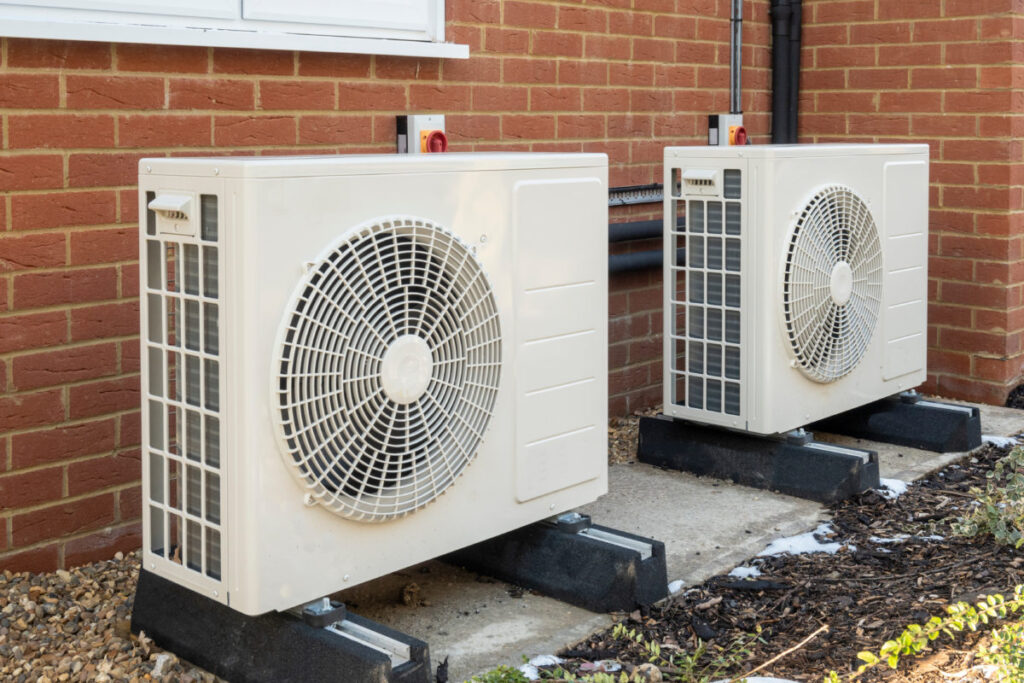
What Is a Heat Pump?
So what is a heat pump? A heat pump is a type of HVAC system that uses external temperatures (from the ground or air) to moderate your indoor temperatures. Although the name may suggest otherwise, a heat pump is used to both cool and heat your home.
The most common type of heat pump is the air heat pump, which draws in air from outside of your home. Today homeowners can also purchase a geothermal or ground heat pump.
With a geothermal pump, HVAC contractors drill the HVAC system into the ground. From there, the heat pump pulls warm air from an underground pipe and uses that to moderate your indoor temperatures.
Pros of Heat Pumps
There are many pros of heat pumps. The primary benefit of a heat pump is, of course, its low environmental footprint.
As we all know, traditional heating and cooling systems wreak havoc on the environment. For the environmentally-conscious homeowner, heat pumps are an excellent alternative.
But there are other advantages to using a heat pump other than its environmental benefits. Unlike other HVAC systems, the heat pump is a two-in-one system that offers both heating and cooling.
Having two systems in one machine certainly has its perks. Namely, you only have to worry about the maintenance and repairs for one device rather than two, which cuts down homeowner costs over time.
Heat pumps also operate much more quietly than standard furnaces. Additionally, they also can heat (and cool) your home much more thoroughly. Finally, they can improve your homes’ air quality.
As far as heating systems go, there are many pros of heat pumps.
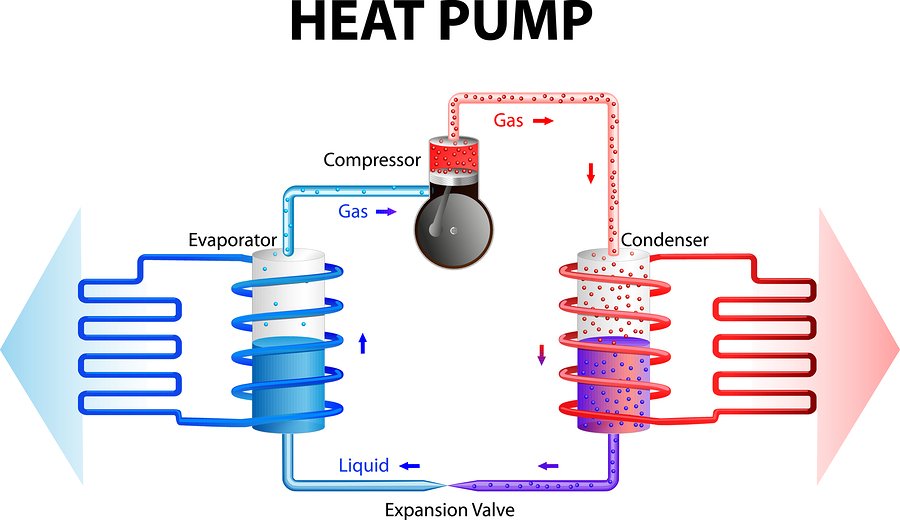
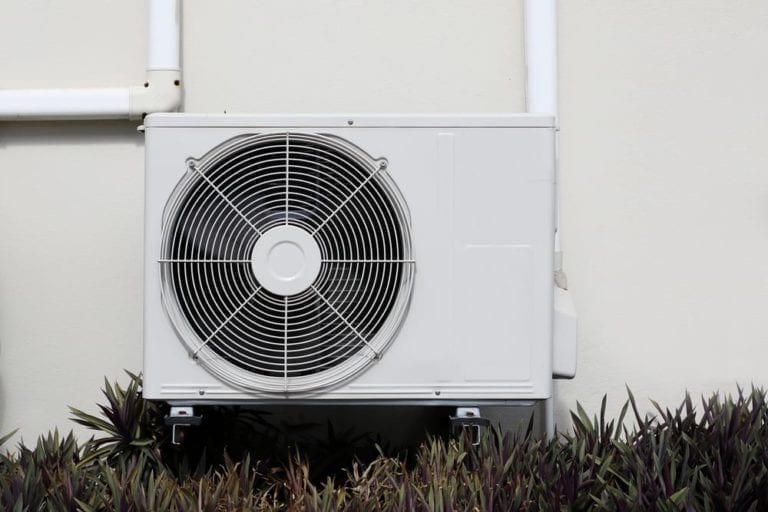
Cons of Heat Pumps
Still, buyers should be aware there are cons of heat pumps. The biggest drawback is the hefty upfront investment to install the system.
While you can reason that you’ll save money through lower utility bills over time, the upfront payment is staggering as it can sometimes cost upwards of 20% more than traditional furnaces.
Because many heat pumps are installed in the ground, heat pump repair can be a bit expensive, too.
Other cons of heat pumps are:
- Heat pumps are less effective for homes in cold environments (like the Midwest)
- Heat pumps have loud outdoor units
- Heat pumps are difficult to install
- Heat pumps use a lot of electricity
As a result, it’s important for homeowners to think carefully about whether a heat pump is the right choice. If you’re struggling with the decision, call Plumbing in Pink. We can give you specific advice for your Greenville, SC, home and help you decide if a heat pump is a good fit.
Heat Pump Installation and Heat Pump Replacement
The biggest downside to the heat pump is the high installation cost. As you may imagine, installing a geothermal heat pump is a much more extensive installation process than installing an air heat pump.
The good news? An air heat pump only takes about a day to install. For premier installation and heat pump replacement services, call our team of experts. We’ll happily provide a thorough heat pump installation service.
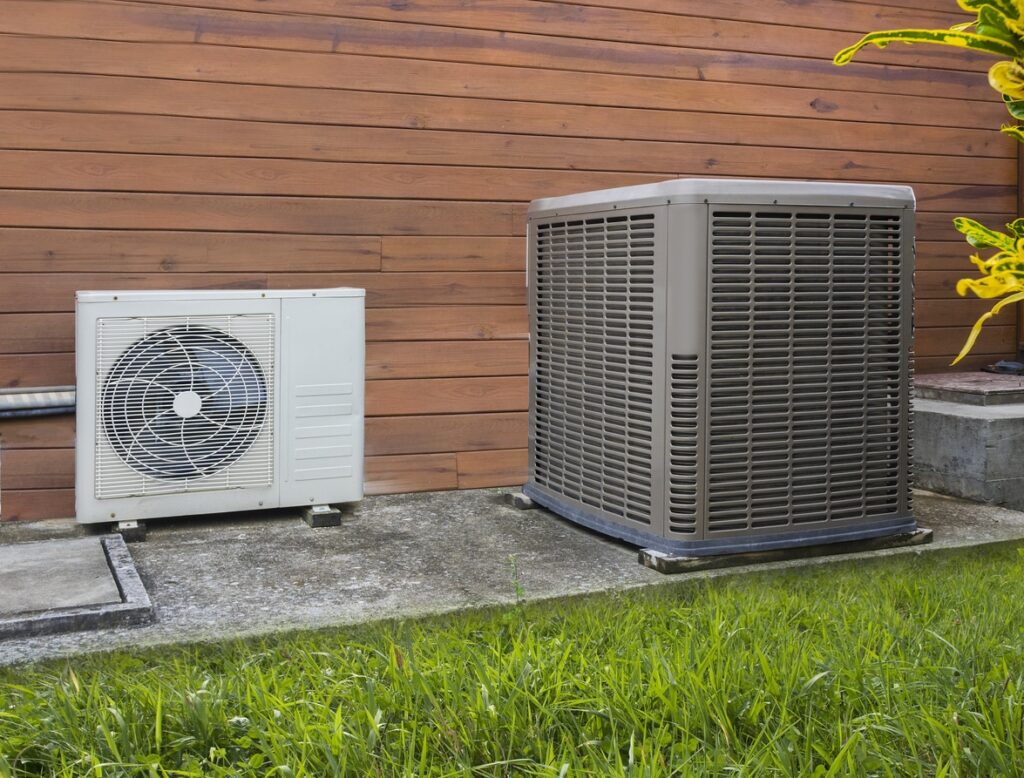
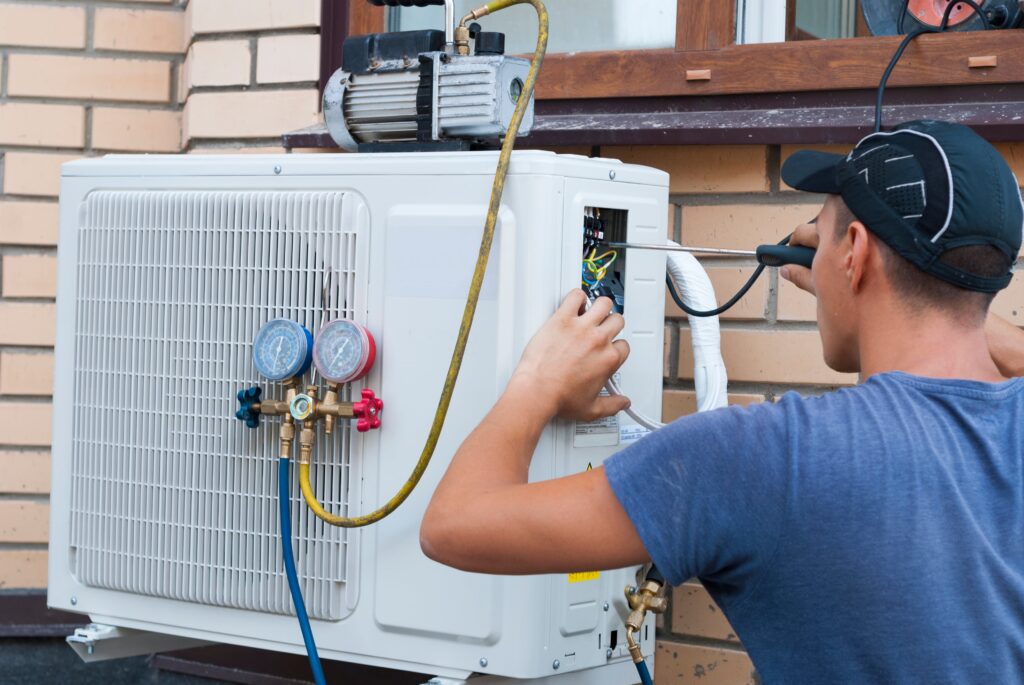
Heat Pump Maintenance
Heat pumps are like any other home system in the sense that they require consistent maintenance and tune-ups.
Every year, a professional must come to clean the machine, clear away debris, check liquid levels, and inspect the unit for parts that are old or worn out.
To prevent the need for costly heat pump repairs, homeowners should schedule heat pump maintenance once a year before the winter season begins. A certified technician will complete a thorough checklist to ensure your heat pump is ready to handle the upcoming season.
Our technicians will check your heat pump for:
- Ductwork leakage or cracks
- Adequate airflow
- Proper motor and belt lubrication
- Proper refrigerant levels
- Clean filters
- Clean blowers and indoor coils
Annual maintenance is essential for a healthy heat pump. Make sure your heat pump is ready for the upcoming season, and book a heat pump tune-up today.

